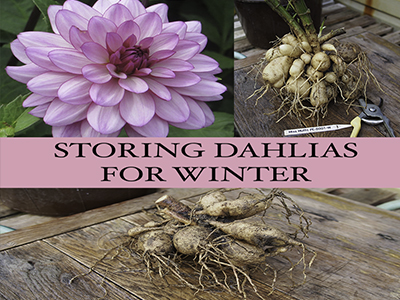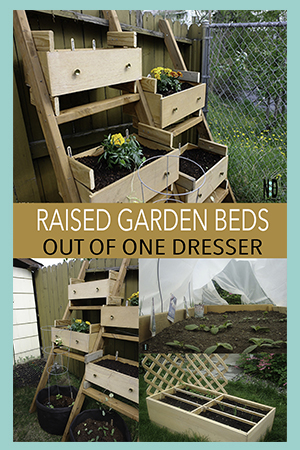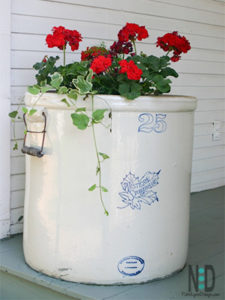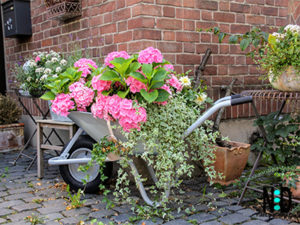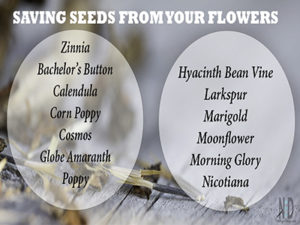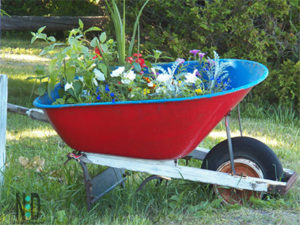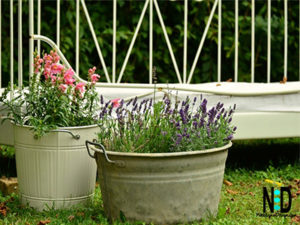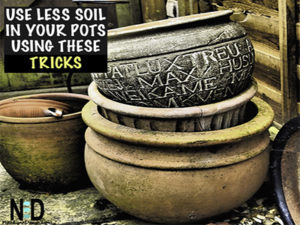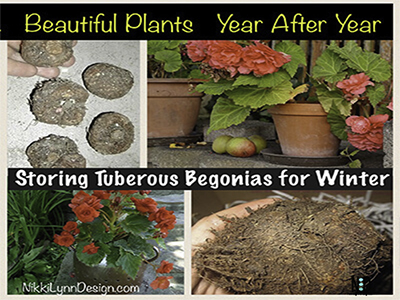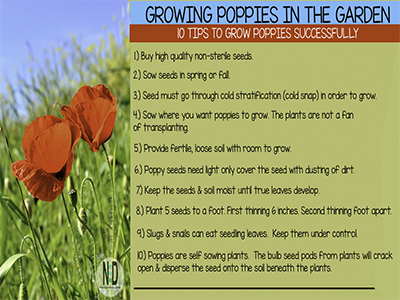Storing Dahlias Over Winter
Many types of dahlias do not survive the snowy cold winters here. We have to lift them out of the dirt or purchase new ones come spring. I wrote up a quick guide to digging up and storing dahlias over winter.
Digging Dahlias Out For Winter
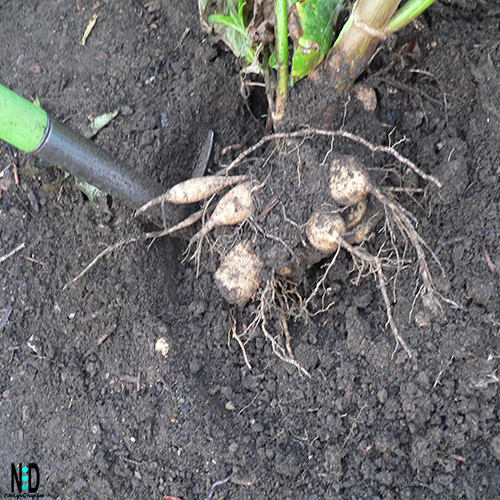
Lift Out Dahlias
1.) Lift Out The Dahlias – After the first hard frost, the tops will blacken. You should cut the flower stalks 6 inches above the ground.
Then take a pitchfork and push it into the soil working your way in a complete circle about a foot away from the stem.
Now go back and gently pry the clump. Label the stem of each clump with the variety’s name and color.
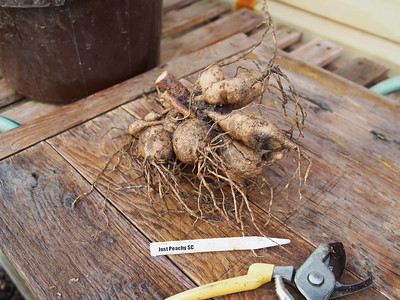
Dry In Sun
Set the clump out in the sun to dry the soil. It is best to turn the stem on its side or with the dirt side up to dry it.
Before nightfall, gather up your clumps and shake off any extra soil without damaging your roots. Do not leave them out at night for fear of frost.
Storing Dahlias Over Winter
Powdered Sulfur
Take each clump and dust with powdered sulfur. This will protect against rot during winter storage.
Powdered sulfur is excellent to use for winter storage of flowering bulbs like dahlias and begonias to prevent insects from getting to your bulbs and powdered mildew and black rot during storage
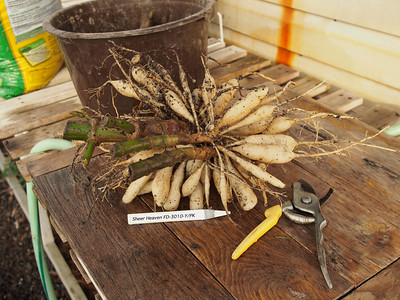
Wrap In Newspaper
Wrap each clump in dry newspaper and place them into a cardboard box.
Store the bulbs in a dry place with temps between 35-50 degrees.
Spray With Water
Check on your roots every month. If they have shriveled a quick spray of water will firm them back up.
Additional Post: Dahlias
Planting In Spring
If you would like to divide your dahlias, now would be the time to do so.
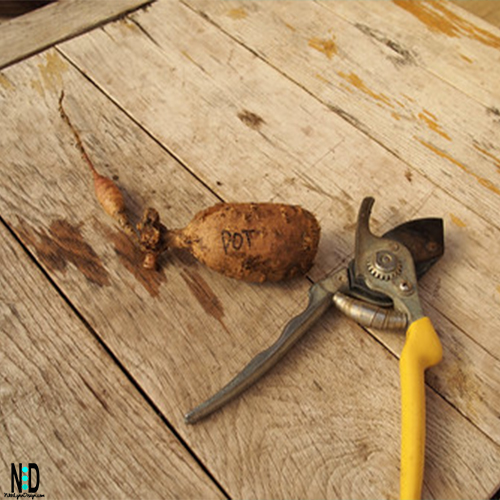
Dividing Tuber Clumps
Divide the tuber clumps in early spring. But, if you want, it can be done in the fall as well.
Cut apart the tubers and place them on separate labeled containers to let them form a scab before planting.
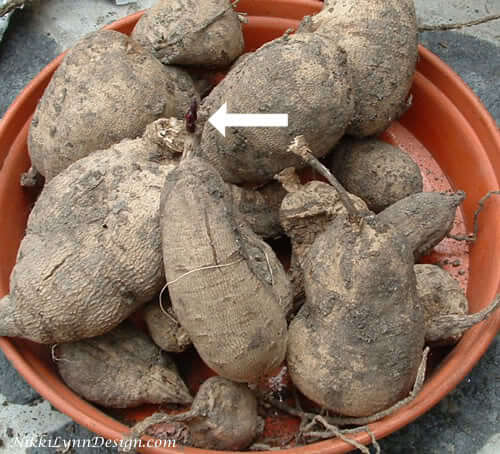
Plant Me Correctly
Plant Me Upright – After the chance of frost has passed, it is time to plant.
The arrow points to the end that must be planted facing up.
1.) Dig a large hole 6 to 12 inches deep.
2.) Add compost, or well-rotted manure and mix well into the
bottom of the hole.
3.) Cover with dirt.
Sharing Is Caring – Pin Me!
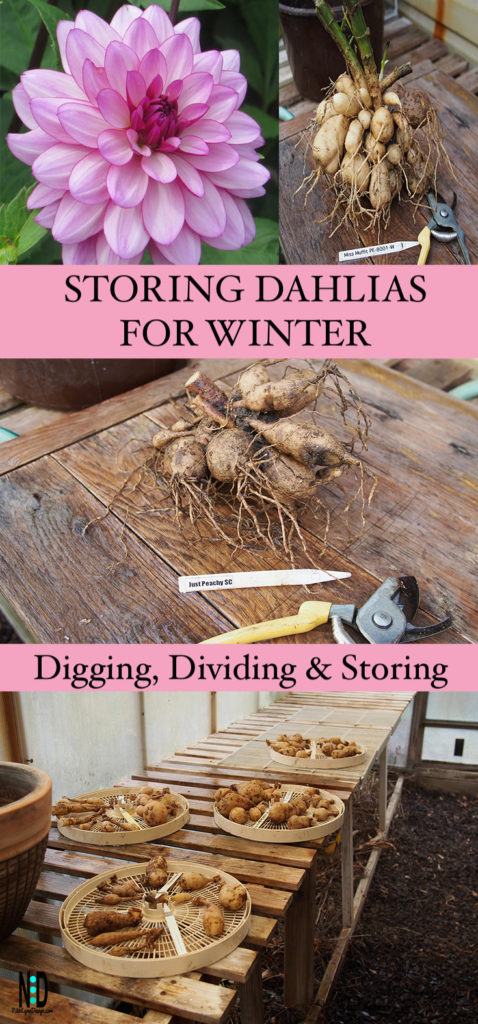
Additional Posts
AFFILIATE POLICY: Posts on this site may contain links to outside vendors that pay me a commission when you purchase from them, at no additional cost to you. Thank you for supporting this site!
